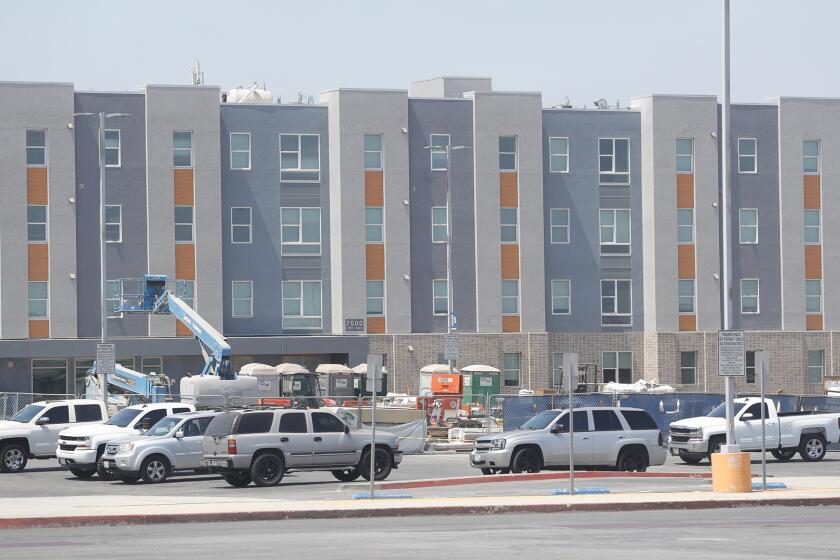Orange Coast College’s $113-million Student Union, College Center near completion
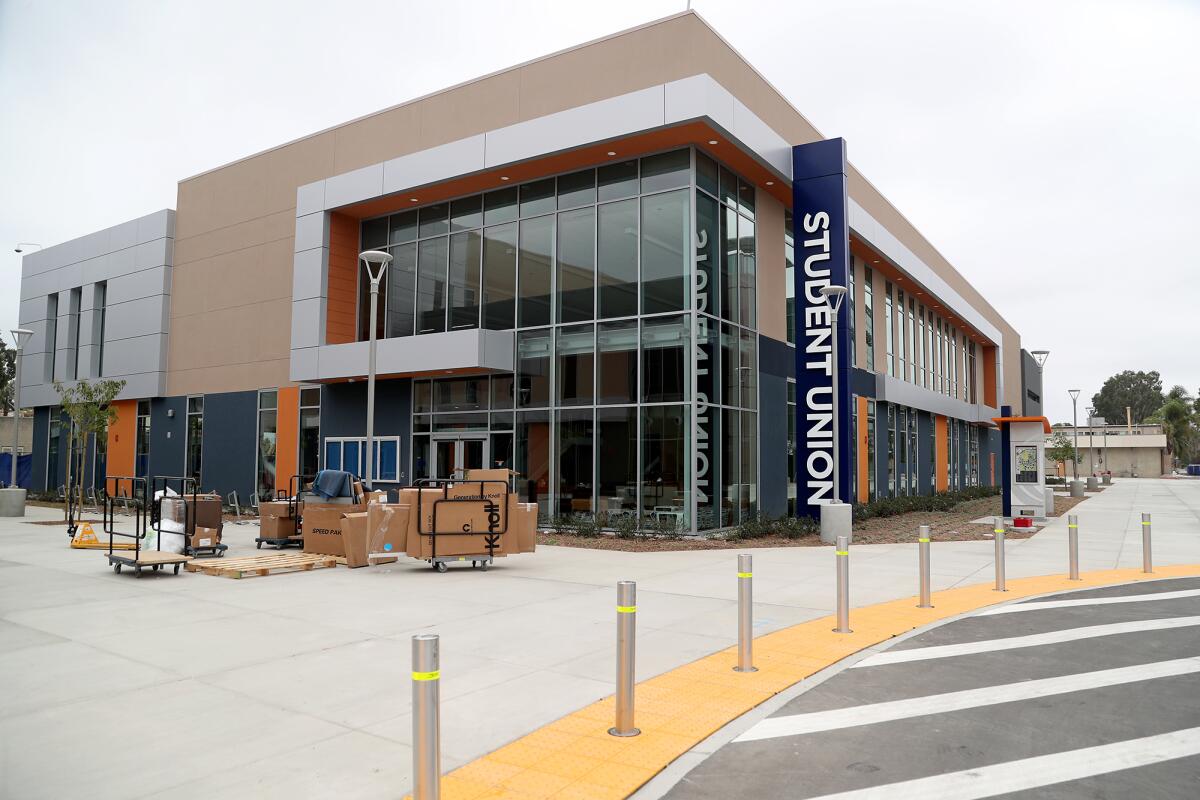
- Share via
Orange Coast College has been a relative ghost town since students transitioned to distance learning in March during the coronavirus pandemic, but for work crews, planners and designers the past few months have been busier than ever.
And that work is beginning to bear fruit as officials with Orange Coast — still mainly closed as online instruction continues through the fall — announce the completion of several major building projects on the Costa Mesa campus that have been in the pipeline for more than a decade.
Without the usual fanfare of a ribbon-cutting ceremony and public unveiling, work wrapped up in April on a $51-million aquatics center that is home to a 65-meter pool and 47,000 square feet of space for athletics and kinesiology courses.
And now two new campus superstars — a 40,800-square-foot Student Union and a College Center, whose 119,185 square feet of space will accommodate a cafeteria as well as the campus’ culinary arts, hospitality and tourism programs — are nearly ready for their campus debut.
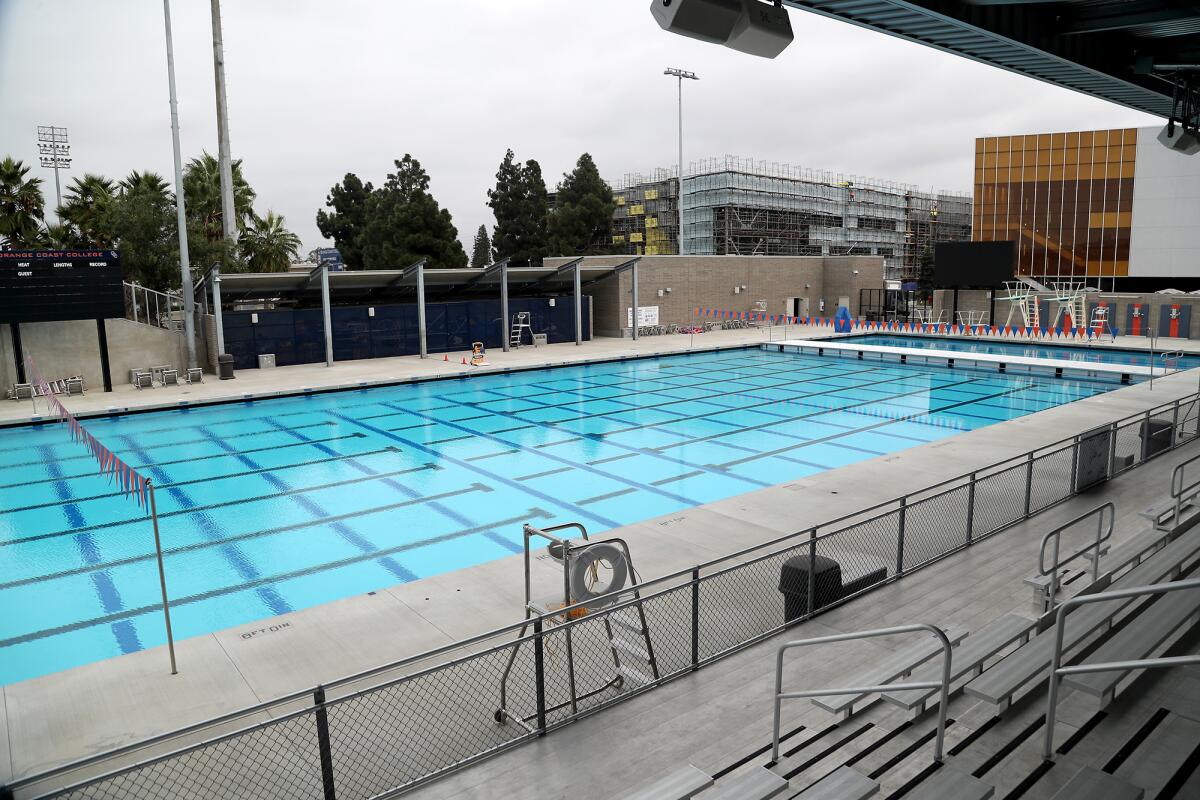
With a combined cost of about $113 million, the two structures are funded by Measure M, a $698-million bond measure for Coast Community College District passed by district voters in 2012.
“All of the construction that’s happening on our campus is truly because our community supports OCC,” Orange Coast President Angelica Suarez said Tuesday. “We can’t wait to open — I cannot stress that enough. It really is exciting.”
The Harbour, a new housing complex at Orange Coast College, will open in September. But with the fall semester still online only, many students have been looking to back out of their leases.
Rich Pagel, OCC’s vice president of administrative services, remembers walking around the campus in the early 2000s, when it was predominated by old buildings that lacked the infrastructure needed to support the technological requirements of a vastly growing student body.
“The previous student center building was built in 1956 for a population of students around 2,500 — today we have a population closer to 25,000,” Pagel said. “Students were distributed across campus and for clubs, they were meeting in a lot of odd places. With these buildings, people are being brought together and programs are being brought together that weren’t before.”
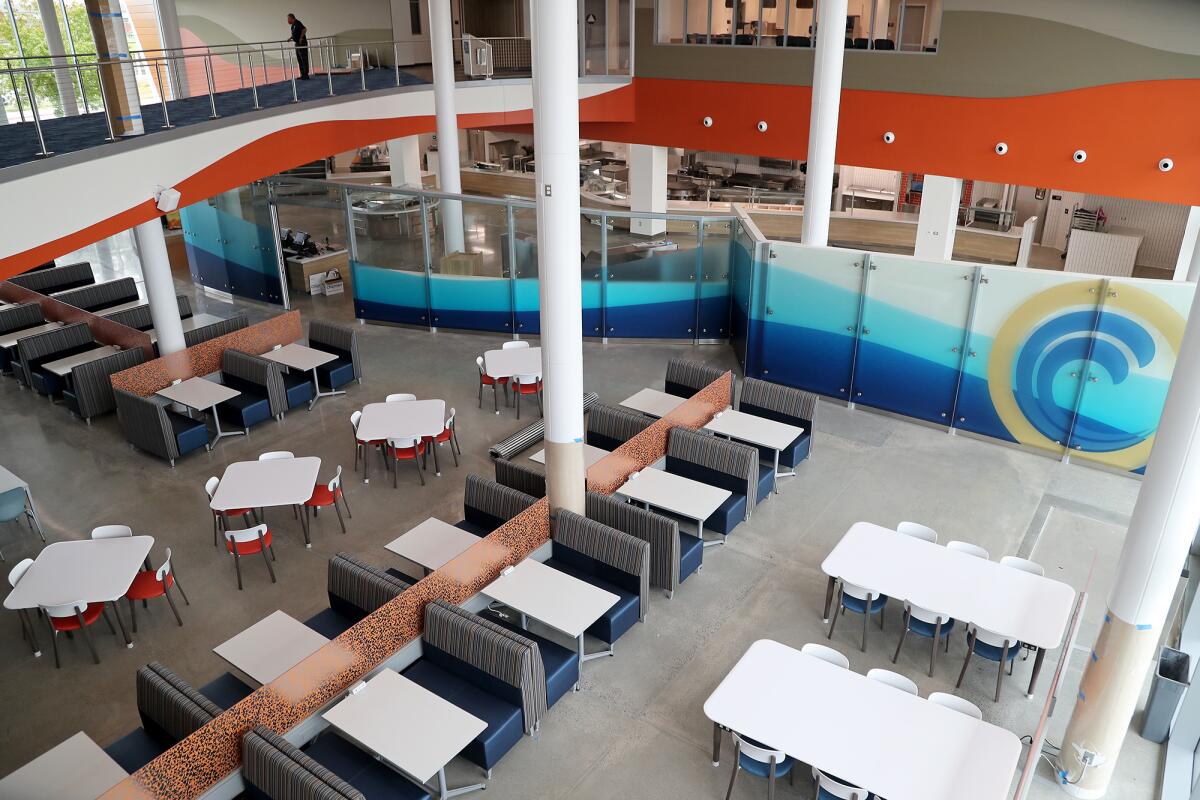
Pagel anticipated the college will hold a soft opening for the buildings, to ensure they are fully operational and so administrators can begin preparing for how instruction might look when students are allowed to return to campus.
“I think everybody is ready to get going, but we have to be safe,” he said, adding staff are keeping a trained eye on California’s changing reopening guidelines.
But even before students migrate back to campus, some faculty members are getting a taste of how the new digs might bolster instruction and program operations.
Bill Barber is a program coordinator for OCC’s culinary arts program who joined the campus in 1990 as an instructor and recently began using the new College Center kitchen to conduct live broadcasts of his classes.
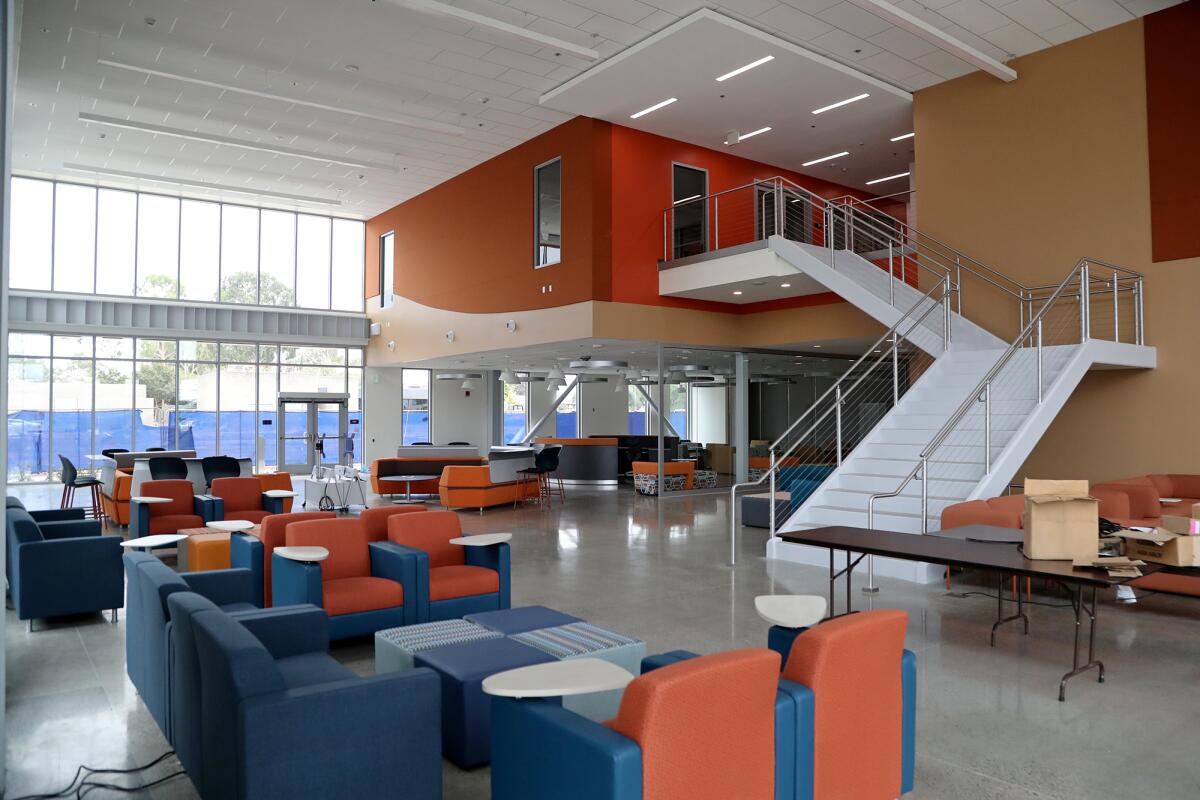
He said the new accommodations will let students taking culinary classes work in designated instructional areas, rather than working in a portion of a cafeteria used by school employees, and allow the program to expand even further.
“In the old building, there were 18 burners and I’d take 18 students,” Barber said. “In our new building, we have 48 burners in the same kitchen. Everybody will have a lot more space and access to equipment.”
Suarez acknowledged the limitations that space imposed on programs, such as the culinary arts classes.
“The facilities we had were not sufficient to truly train our students in culinary arts,” she said. “Students need places to engage and study and get together, and it just wasn’t equipped to accommodate that.”
“The new buildings will allow us to consider expansion for some of the existing programs we have,” Suarez continued. “This is where students are going to come and engage and learn and be inspired — that’s what we want.”
All the latest on Orange County from Orange County.
Get our free TimesOC newsletter.
You may occasionally receive promotional content from the Daily Pilot.
